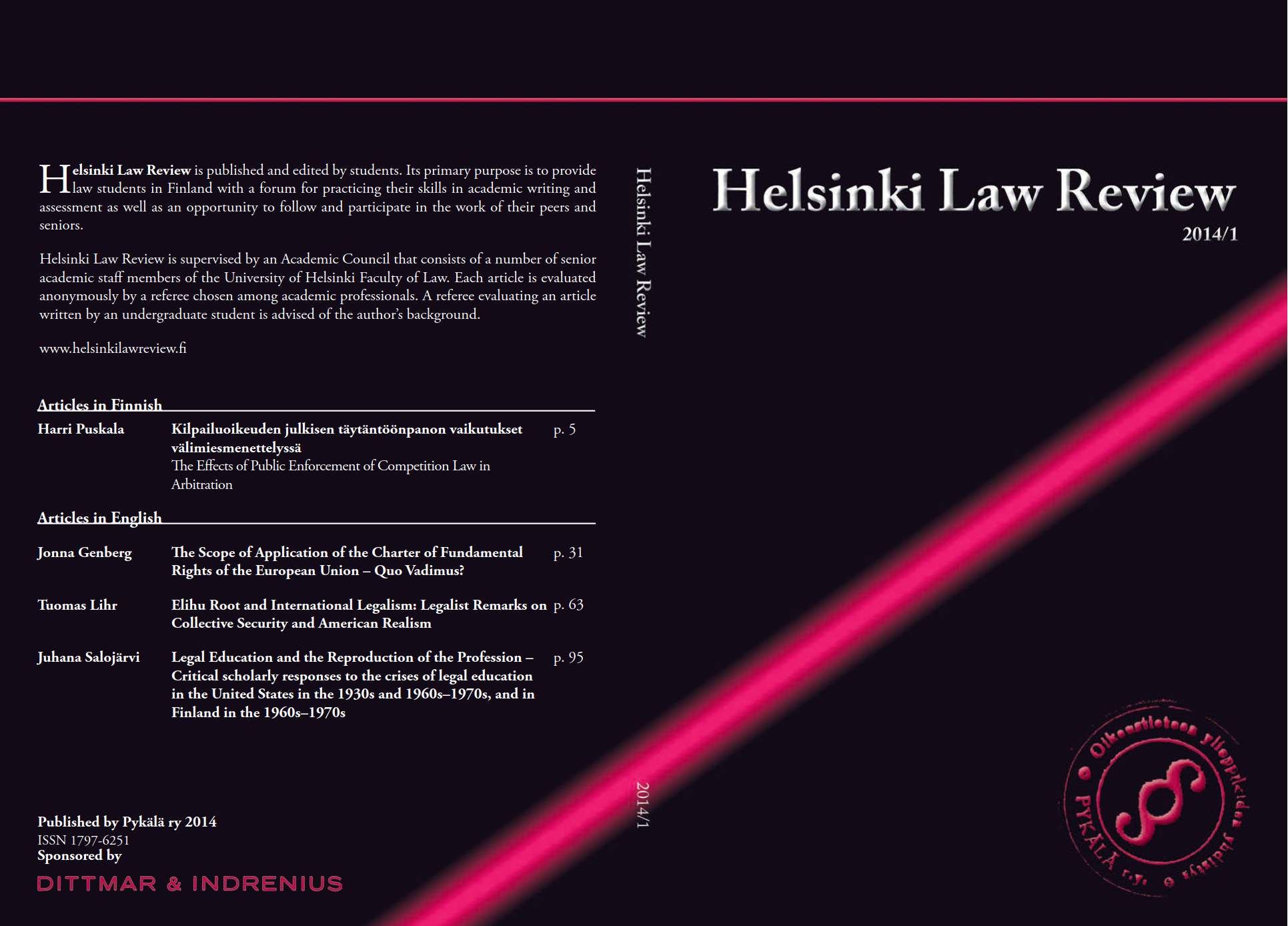Elihu Root and International Legalism: Legalist Remarks on Collective Security and American Realism
Keywords:
Charter of the United Nations, collective security, Covenant of the League of Nations, Elihu Root, international law, legalism, realismAbstract
Elihu Root was the paragon of the legalist era in American foreign policy, which saw the strengthening of international law and institutions as the keys to world peace. In the battle over the Versailles Treaty in US Senate, Root denounced the newfound collective security system because of the political nature of the process. Legalists deemed law and courts as best suited to settle the conflicts arising from irrational power politics in world affairs.
This article examines the League of Nations and UN collective security systems, as well as American standpoints on them, from a Rootist perspective. A legalist might argue that the UN inherited the fundamental !aws of the League because the institutional balances of the organizations are very similar. Prevailing American realist approaches to collective security and international law, in turn, have come a long way from Root’s time.
While recognizing the inevitable taking out of context such a study entails, I am going to propose that through legalist eyes, the UN could benefit from a more balanced structure. Welcomed developments could include restraining the dominance of the Council in decision-making. In US foreign policy, legalists might advocate an American commitment to the UN collective security system and international court projects.


